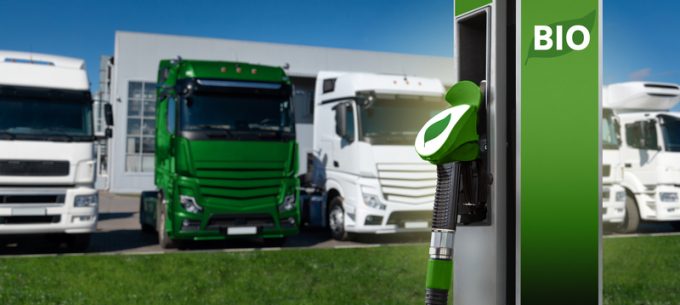DFDS celebrates Ekol buy, and says shift to electric trucks going 'better than expected'
They have been partners since 2018, started acquisition talks in 2022 and now DFDS has ...

As the EC FuelEU Maritime sidelines biofuels on environmental grounds, the trucking industry has begun a push to increase its adoption for road transport in the UK.
The UK Department for Energy Security & Net Zero released its Biomass Strategy in August, which specifies that, with limited supply available, biomass should be allocated to hard-to-decarbonise sectors, such as power, heating and transport.
However, which transport sectors are the most deserving remains an open question. Despite several all-electric trucks options on the market, including from Volvo and Tesla, experts in the trucking industry remain unimpressed.
“The release of the biofuel strategy is a promising development for alternative fuels, while some companies are even trialling solar- and kinetic energy-powered vehicles to fuel their fleets,” said Lyall Cresswell, CEO of Transport Exchange Group, who added that battery-electric trucks “don’t provide enough reliability and efficiency to meet consumer demands”.
He said: “If there are more fuel price hikes in the coming months, we can expect more operators to explore alternative fuels. Road transport prices have dropped this month, but any upcoming fuel price increases might change that.”
Biomass, and the biofuels which could be derived from it as a fuel for transport, are limited, given that many of the processes to grow ‘sustainable’ crop biofuel can do more harm than good. Transport & Environment (T&E) noted in one report that burning palm oil for fuel, with the indirect effect of deforestation to clear space for palm plantations, is considerably more damaging than continuing to burn fossil fuel.
But the question of what constitutes a “hard-to-decarbonise sector deserving of the limited supply of sustainable biofuel” exercises environmentalists. Though it is generally considered hard-to-decarbonise, the FuelEU Maritime legislation calls for biofuel supply to be redirected away from shipping, favouring trucking.
However, said the bill: “It is essential to minimise such a shift, as road transport currently remains by far the most polluting transport sector and maritime transport currently uses predominantly fuels of fossil origin.”
In the UK, biodiesel has seen uptake in rail cargo, despite being the easiest sector to decarbonise through the century-old technology of overhead electrical cables.
And in air cargo, the hardest-to-decarbonise sector of all, not everyone is happy about the growing uptake of ‘sustainable aviation fuel’ (SAF), which, Opportunity Green CEO Aoife O’Leary told The Loadstar this month, is so nebulously defined that there was “no such thing”.
She added: “SAF is everything from dodgy palm oil and other deforestation-based fuel; you’ve got some used cooking oil in there, there’s a wide range. But it’s pitched as though it is one fuel.”
Comment on this article